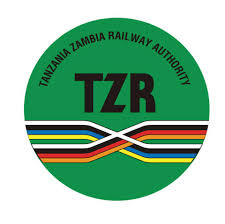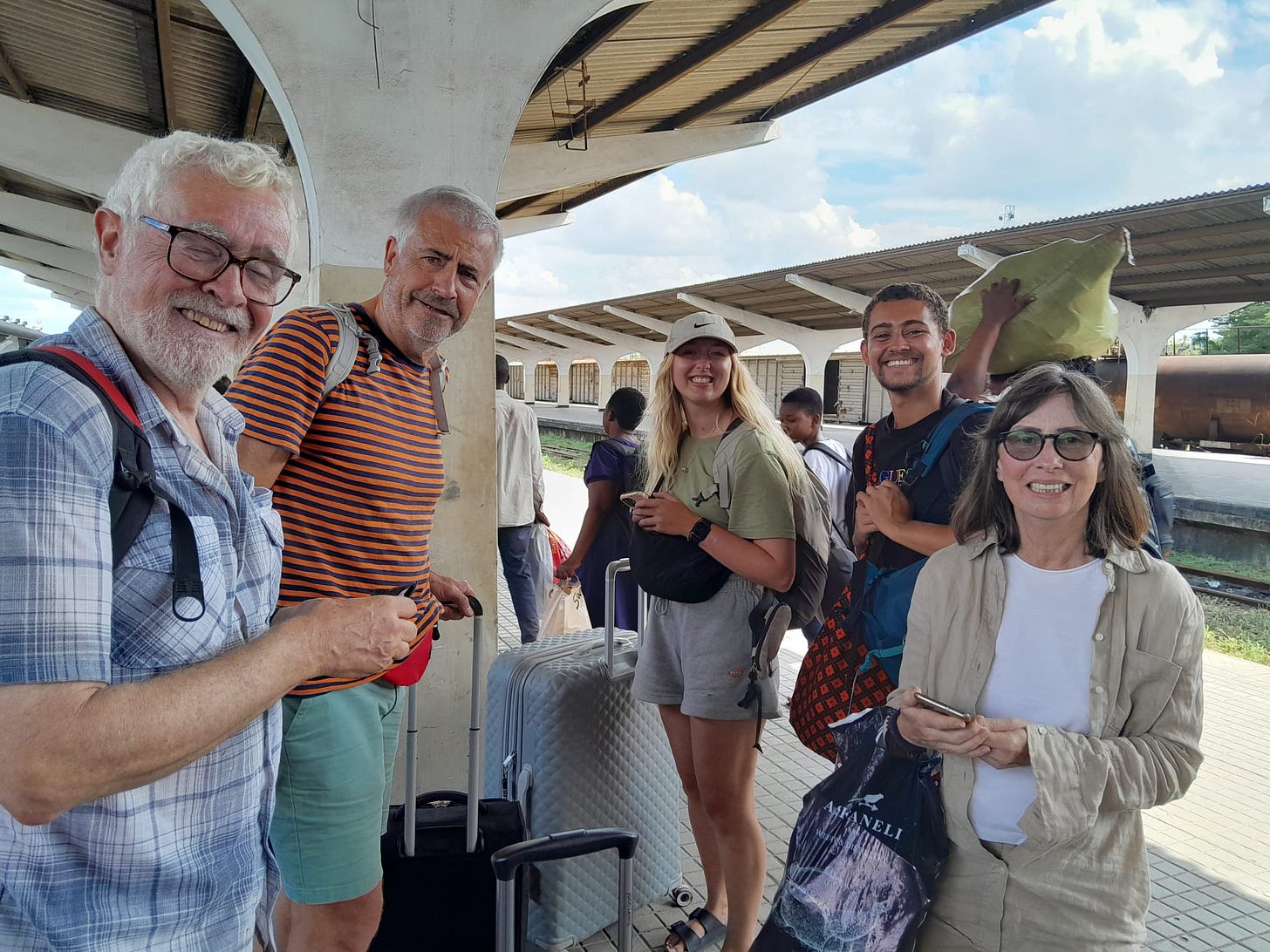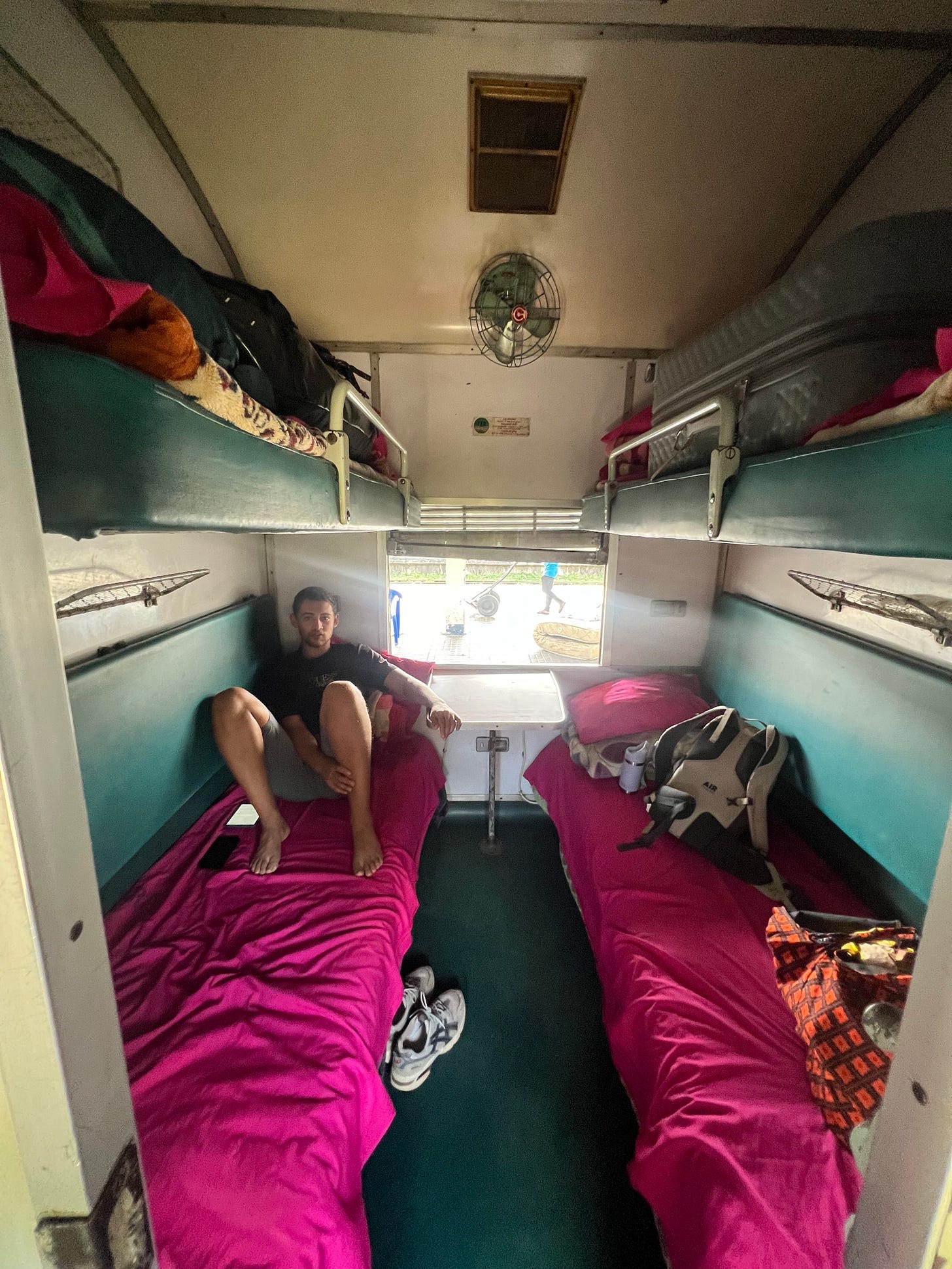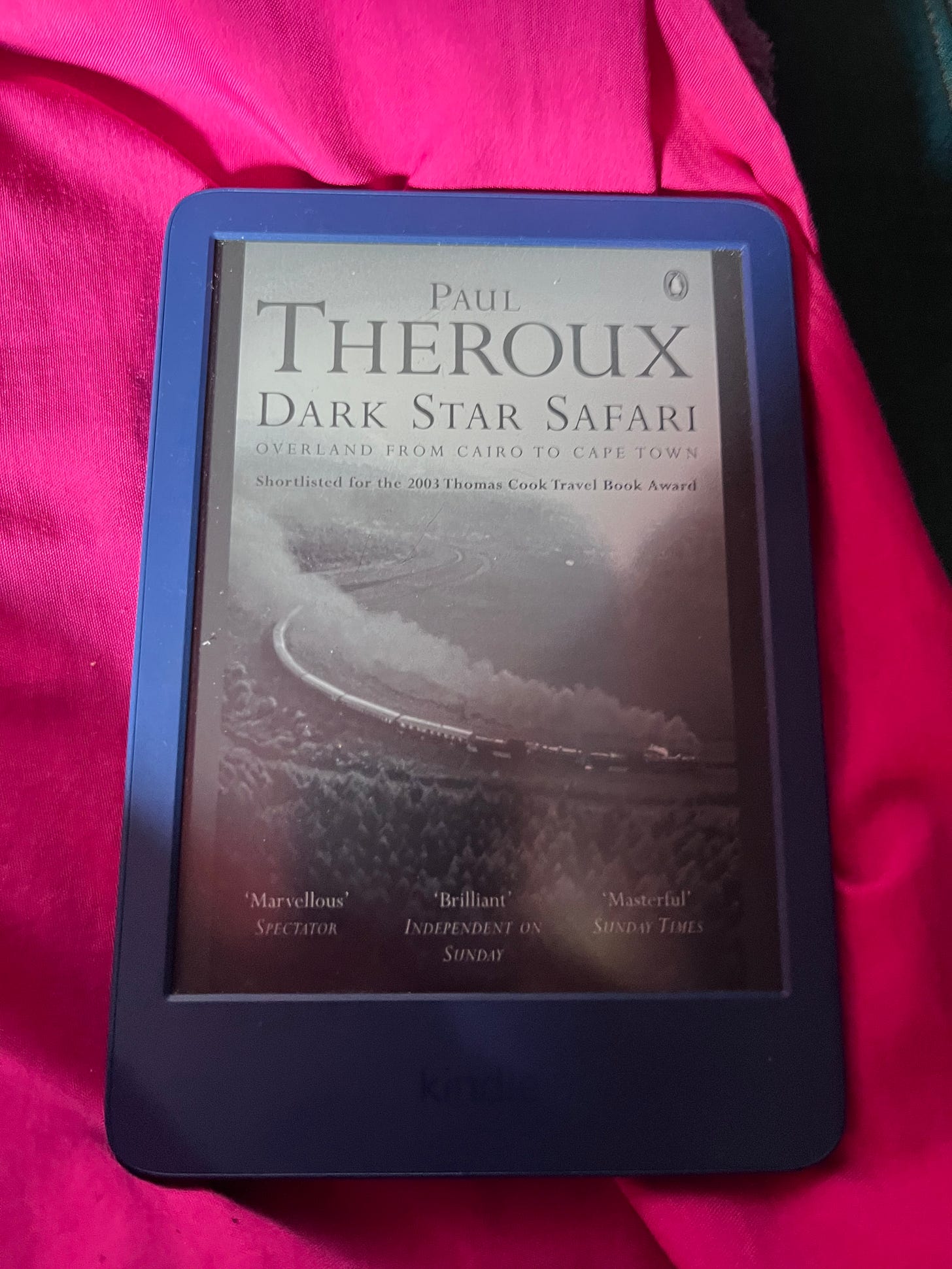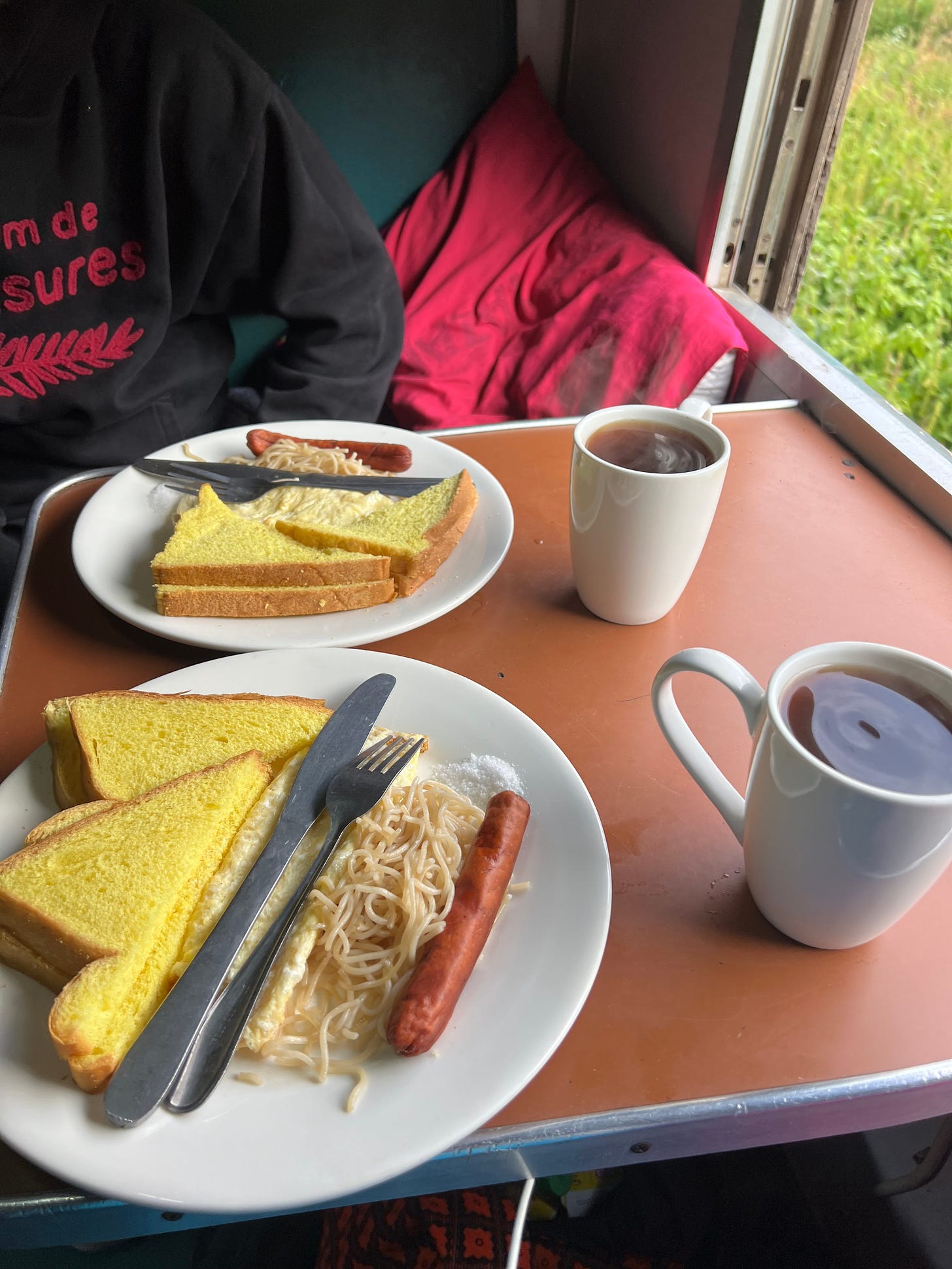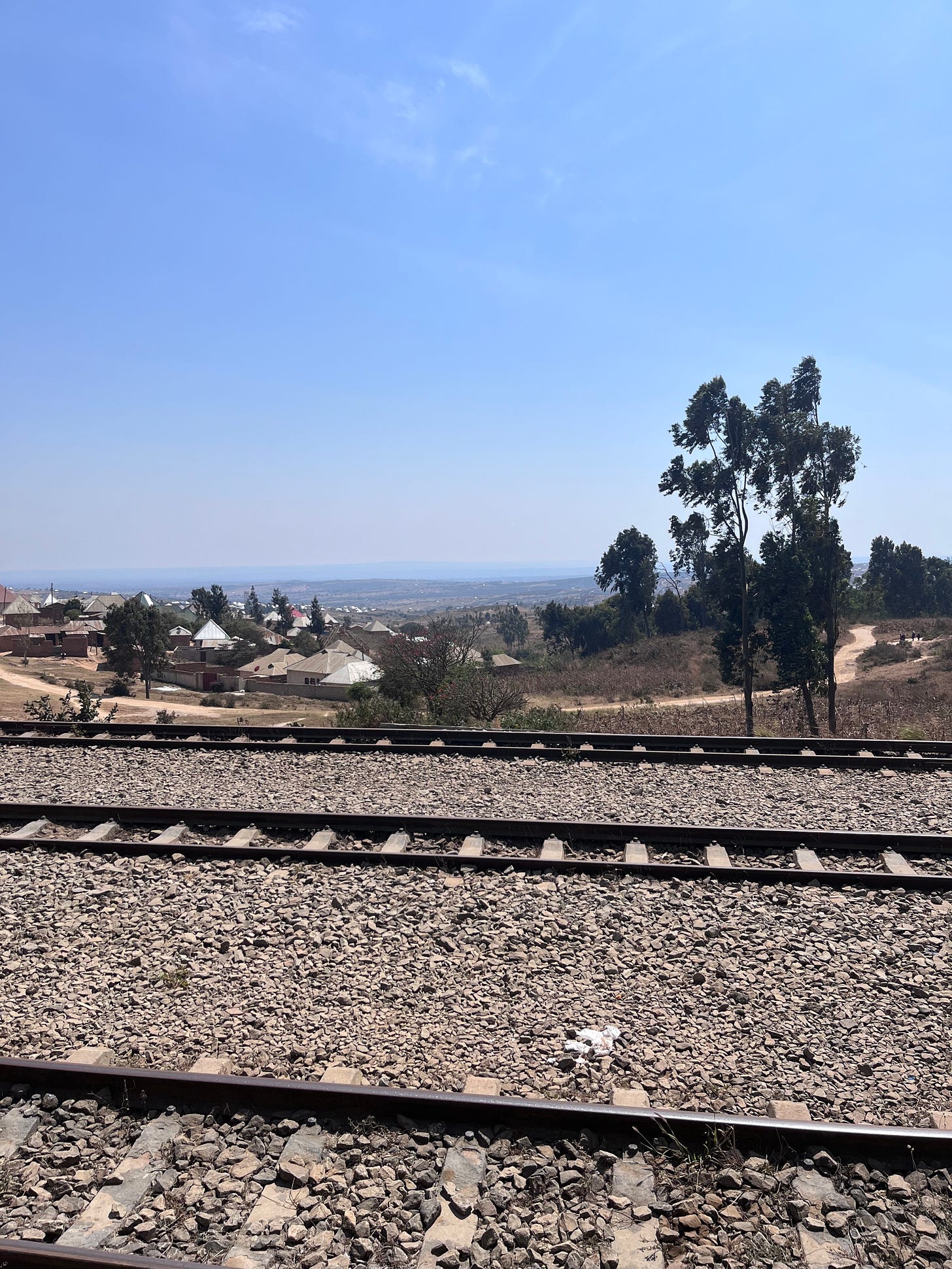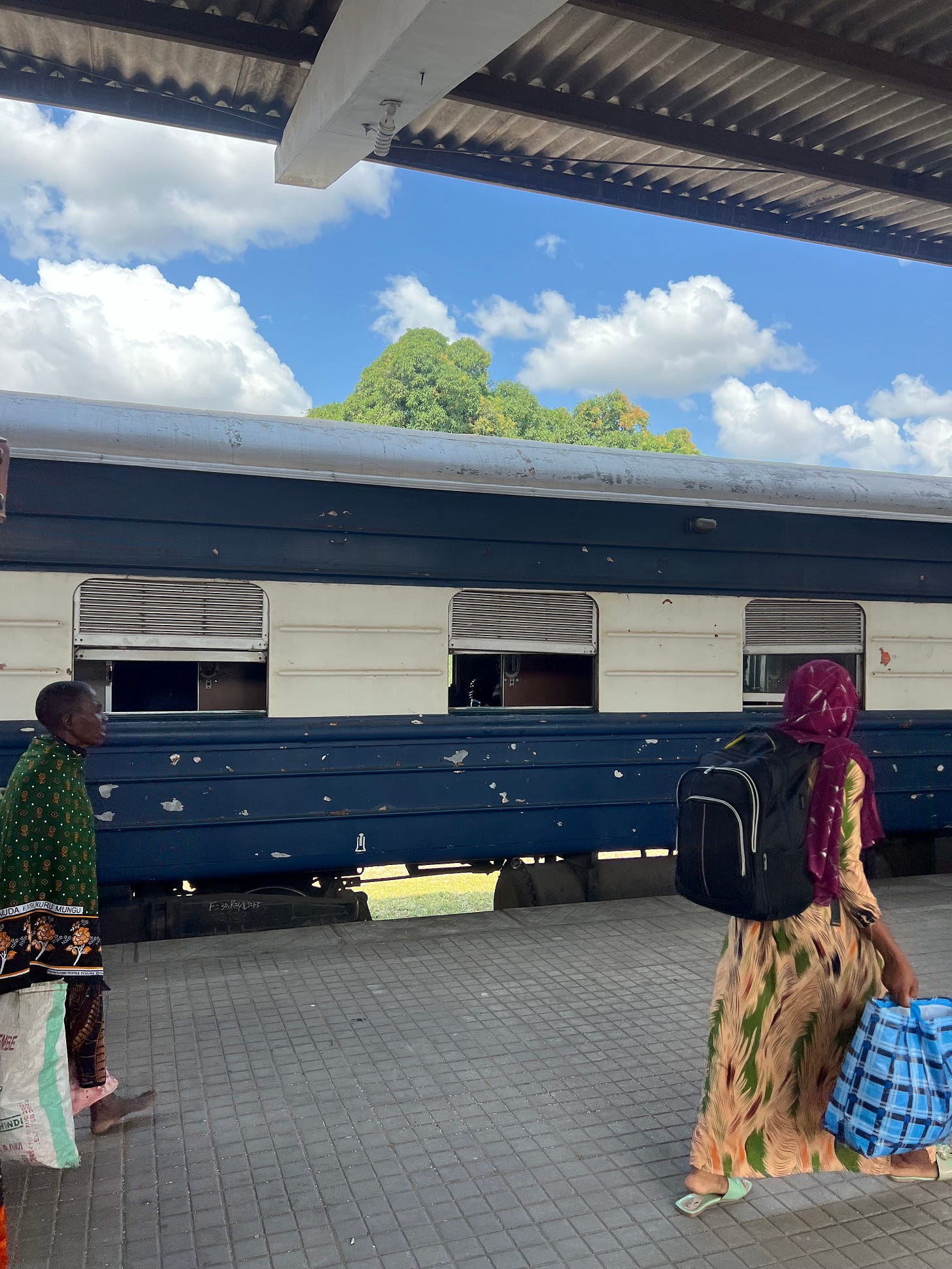
In terms of distance, this journey might not seem too impressive. It’s less than land’s End to John o’ Groats.
But this isn’t Land’s End to John o' Groats.
This is Dar es Salaam to Mbeya.
This is almost a full ascent and descent of Mount Everest in terms of elevation.
This is a train that’s famous for sometimes being over 24 hours late and often runs out of water for its passengers.
This is the bizarre, hilarious and exhausting train ride that quite possibly could’ve killed us.
Like all great journeys, ours began with a single step. We crossed the threshold from Swahili Homes B&B with the sun on our faces and the stench burning plastic in our nostrils. The TAZARA train from Dar es Salaam to Mbeya was scheduled to leave at 1:50pm. We were told to arrive by 12:30pm.
So, for some background: The TAZARA has been running from Dar es Salaam (Tanzania) to Kapiri Mposhi (Zambia) since 1975. It was built, with Chinese support, to help remove Zambia’s economic dependance on the white-supremacist governments of Rhodesia and South Africa. It was China’s biggest foreign aid project at the time and cost around $3 billion dollars (adjusted for inflation).
The TAZARA is globally-infamous for its delays. It’s never on time and can often be over 12 hours late to arrive in Kapiri Mposhi. We knew this before our trip and refrained from booking our accommodation in Mbeya, its current termination point. Our relaxed attitude meant that I secretly hoped for delays. I wanted to witness the chaos of this journey. I wanted the full TAZARA experience, for better or worse.
We arrived at the station at around 1pm. We knew that nothing ran on time here but my palms were still clammy at the thought of missing our train and having to wait until Friday for the next one.
The station is large and grey and ugly. It has high ceilings and an open interior. It’s essentially a carbon copy of the sort you’d find in China, having also been built by the Chinese during Tanzania’s flirtation with Communism in the 1970s. There is nothing remotely African about this station. We climbed the stairs with my 25kg rucksack, Ellie’s 25kg suitcase and our smaller daypacks. We showed our 4 tickets to the guard and he pointed us to the far side of the second storey where we found the first-class lounge.
First-class was our only option as we wanted to share a cabin. Men and women are separated in cabins unless you buy all four bunks. It cost around $66 dollars for a private cabin, which seems excellent value to travel the length of Africa’s 12th largest country.
The first-class lounge was small and every seat was occupied. The seats closest to the door were taken up with Africans and in the seats at the far side were white Europeans. We moved to the far corner and sat between a mother-daughter and an older white couple. The older couple talked amongst themselves and it was clear that they were from the South of England. I waited for the right time to interject and we began the customary small talk that you might find in station waiting rooms across the globe. Where do you live? Where are you headed? How long have you been on the road? Etc. etc.
Their names were Julia and Rigby. Rigby was a rail engineer in Dubai so I was pleased that we’d met someone who knew something about trains. They were polite and interested and as we swapped stories, another older British couple approached us. Catherine and her husband were Quakers and they had been travelling via rail from their home of Hebden Bridge. They travelled from Hebden Bridge to Istanbul and then flown to Addis Ababa and visited a Quakers missionary project in D.R. Congo. They were serious travellers and extremely gentle people. Catherine seemed a professional talker and her husband offered warm smiles and slim Santa Claus vibe. I’m not sure the six of us would’ve stuck together if not for Catherine’s motherly energy.
The tired train pulled into the platform at 1:50pm, the scheduled departure time, so we already knew we’d be moving off at least an hour late. Thankfully, we found our compartment empty and luckily. We were just two doors down from Catherine and her husband. We threw our bags on the top bunks and inspected the pink sheets. They were clean enough.
We were giddy with the expectation of the most exciting leg of our travels yet. Who knew what might happen? I leaned out of the window and watched hundreds of passengers moving along the train with, quite literally, tonnes of luggage in white sacks, heavy suitcases and hundreds of brightly-coloured plastic tubs. I couldn’t help but feel sorry for the poor souls spending over 24 hours folded into narrow seats while we had four bunks to stretch ourselves out in.
The train pulled out of the station exactly an hour late. We were impressed, having read horror stories of people waiting stationary for up to six hours before being told that the train would not, in fact, be departing that day.
Within half an hour, the train lurched unsteadily through small villages on the outskirts of the Tanzanian capital. The sun felt warm on my face as I waved back at the children who excitedly greeted the train as it tore holes through their modest settlements.
It wasn’t long before I saw the first of many items of litter being thrown from the train. An empty coke bottle spun out of a window a few compartments down and landed in the bush. The entire length of the TAZARA line was littered with rubbish from ignorant passengers. Everyone litters here. They throw rubbish from their cars, their buses and their trains. An entire continent throws back its head and laughs while I scold my mother-in-law for putting tetra-packs in the recycling without cutting them up first.
The first few hours were uneventful. The train stopped every half an hour or so for a few minutes and I secretly hoped for an extended delay. We ate our late lunch, chicken, chips and paltry side salad, in our compartment. I washed mine down with a beer and El enjoyed an ice-cream. The two meals and extras came to around £4.50.
There were rumours that we might pass through zebra territory before dark, but these turned out to be unfounded. As the darkness fell on the now endless savannah, we prepared for a night’s sleep on this bouncing, shuddering and often-halting train.
Just after 7pm, we passed a series of controlled bushfires that lit up the inky sky. They stretched in an arc from the horizon, getting closer and closer until the fires blazed beside the track, seemingly a natural barrier to the spreading flames. They were so near to the train that you could feel the heat bristle against your skin.
The train pulled into the busiest stop so far at about 8pm. It was dark so I couldn’t see the name of the station but it was filled with hundreds of locals selling food drink and anything else that they could thrust at the windows. We saw this as the right time to eat in the dining car, forgoing both comfort and privacy for a welcome change of scenery. As we moved towards the dining car we passed the compartment belong to Rigby and Julie, who both looked quite concerned. They had entered the dining car while the train was in motion, and despite moving at less than 40 km p/h, it lurched and bounced uncomfortably. Rigby, a rail engineer with decades of experience, looked me dead in the eye and said “this train is at serious risk of derailment.” I looked at El and back at Rigby, “the shock absorbers are non-existent and it’s only a matter of time before something gives way.” I shrugged and tried to joke it off but he was in no laughing mood.
We shared a plate of chicken and rice while basking in one of the best people-watching destinations on the planet. Men in tribal dress passed through the clinical light of the dining car carrying decorative spears and dripping with dozens of items of jewellery. We looked through the windows and saw women carrying large metal pots and buckets of samosas and baskets of fruit on their shaven heads while men sat idly on the steps and children stalked passengers holding their hands to their mouths in a typical “I am hungry” gesture.
We timed our meal to coincide perfectly with the train’s departure and it seemed more heavily burdened with the new goods and passengers that it had collected.
We returned to our cabin and locked our door as we hunkered down for the evening. I read Paul Theroux’s ‘Dark Star Safari’ where he described his own experience on the exact same journey some 24 years earlier. It’s strange how little had changed on this line in almost a quarter of a century.
Every time I closed my eyes to go to sleep I imagined the train veering off the track into deserted wilderness. The sounds of its shuddering and shaking were so loud that with closed eyes it simply sounded like the seconds before terminal disaster.
Thankfully, I opened my eyes again. First at 11:30pm. Then at 1:30am. And again at 3:30am. This time, I staggered along the empty corridor and to the squat toilet where I aimed at and missed the tiny hole in the ground between my piss-splattered crocs. The train was in a station which seemed impossibly busy for 3:30am. It was even busier than the last packed-out platform. There were entire families hawking their wares under the torchlight of not-very-smartphones and dim lamps. Children lazily held up tiny candies and samosas as they dreamed of their beds. It made me think, half-asleep myself, of this grim routine where tiny kids were roused from their beds in the middle of the night four times a week to hold cheap tat against the grubby windows of a half-century old train for the pennies that their families were forced to live off.
As the train pulled out of the station the torches turned and a village’s army trooped off into the blackness where tin roofs mud walls ensured a couple more hours of shut-eye before they rose with the sunrise.
I woke again at 4:50am. Another station. More shouting. It was at this point that most of the train deemed it acceptable to wake up. I lay in the dark on my hammer-hard bed, eyes straining in my head and ears tuned to the insanity-inducing infinity scroll of someone’s tik-tok in the cabin next door. If you think involuntarily listening to a stranger’s tik-tok session is bad, try the same thing with African tik-tok. Every video has been recorded on a Nintendo DS and they’re all turned up to 11. You hear autotuned high pitch squeals and screams and memes that live in the corners of your mind from over ten years ago. It’s hell.
I lay awake until the unceasing noise of Africa penetrated El’s unsatisfactory sleep. We received a knock at the door from the woman who took our lunch order the day before. This time she had on a Mickey Mouse T-shirt and she was also wearing a hair net. We had two breakfast options: soup and chapatti or sausage, egg, bread and spaghetti.
No, you didn’t read that wrong.
We both chose sausage, egg, bread and spaghetti, fearful of the contents of the mystery soup. Breakfast was fine and dry but we washed it down with a deviously sweetened ginger tea which stole the show.
We opened the window and sipped tea as we passed through verdant valleys and stepped plantation-like hillsides. The landscape was impossibly beautiful and had changed so vastly overnight. We couldn’t believe how much the temperature had dropped as we climbed some 1,000m overnight. It was the first time we had felt a chill in months.
After breakfast, I spoke with Catherine and her husband who believed we’d arrive around 2pm. I sat in their compartment and they told me about their travels. From hiking round the back of Annapurna to riding trains to Machu Picchu, they had certainly seen a lot.
Not long after returning to my own compartment, Rigby knocked on the door with two bananas and he had a TAZARA timetable in his hand. Not for the first time, he looked concerned.
“We’re about five hours late”, he said, “I don’t expect us to arrive until about 7 or 8pm.”
Now, this was a surprise. Despite stopping for a while at some of the stations, they all felt as though they were scheduled. For me and El, it didn’t really matter, but for Rigby and Julia, being on time was essential. They had to travel some 120km to the Zambian border to catch a train to the south and, if they missed it, they would be left with some 900km to cover with no real plan.
The morning went by quickly. We spent our time reading and listening to podcasts and it was looking like a 5pm arrival, which was better than anticipated. We were only 4 hours late. As we checked Google Maps, a saviour in times like this, we noticed that the penultimate stop was much closer to our now-booked accommodation in Uyole than the train’s terminating stop at Mbeya.
We said goodbye to our temporary travelling companions and jumped down from our rolling, lurching, half-century old home and onto the tracks before realising that the platform was on the other side. This shouldn’t have been much of a problem, but pulling El’s suitcase along the tracks was impossible and the stubborn train didn’t seem like moving onwards any time soon. What made this worse was that a crowd of a few dozen schoolchildren began to form around us, curious of the mzungus who had just crash-landed in their village.
The train eventually moved on and we could fully take in our destination. There was nothing here. No taxis, no motorbikes, no tuk-tuks. Just an ever-growing mob of children, a few mud huts and two elderly men who couldn’t speak a word of English. We were an hour’s walk from the hostel with over 60kg of baggage.
We dragged our stuff, with the help of our new friends, into the village and begged a woman to give us a lift. She was stubborn. And again, a crowd of locals gathered around us, shouting in Swahili and pointing at the Google Maps on my phone. People didn’t seem to trust Google Maps here - it was as if they couldn’t believe that an app on a phone could know exactly where I was. I told her that we were just a fifteen minute drive away but she thought I was pulling her leg.
After nearly half an hour of back and forth, she agreed…but not without charging us five times’ what the journey was worth. Despite an ugly argument on arrival and hassle over the price, I felt content. What’s an African journey without a small scam?
Also, we were over three-quarters of the way to Malawi and tomorrow’s trip to our next stop seemed pretty straightforward.
But it was nothing of the sort.




